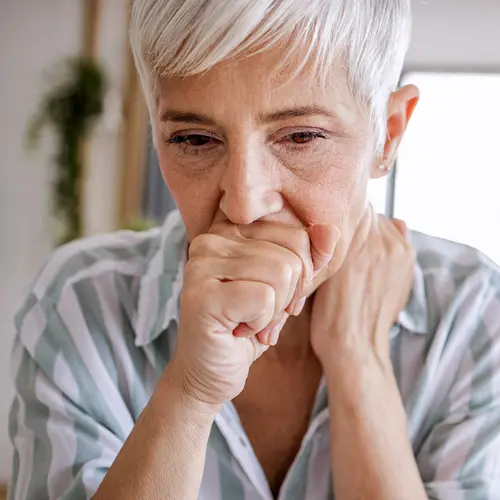Smoking is the primary cause of all cancer and cancer deaths. On average, 1 out of 4 of these are from lung cancer -- more than any other type -- and 9 out of 10 lung cancer deaths are smoking-related. Yet a recent study found that 15% of people with lung cancer were still smoking up to 10 years after their diagnosis, and 85% of them were lighting up at a rate of 10 or more cigarettes every day.
You may feel like you’re already facing the worst-case scenario, so what’s the point of quitting now? But there are many reasons why doing it matters now more than ever. Learning you have lung cancer can actually give you the push you need to quit for good this time.
Why Is It So Hard to Quit?
As you know, it's hard for anyone to quit smoking. If you’re older, you’ve probably tried to quit once or twice before, and it hasn’t worked. And now that you found out you have lung cancer, it can be even harder for you to quit.
In fact, surveys have shown that for people with smoking-related cancer, only 36% of them will quit smoking after their diagnosis. Why is that? Most of the time, the reasons are psychological, not just physical.
The main one is that the disease causes you stress, which can trigger your smoking habit. You may feel stressed for many reasons. At first, you may face fears about your future, worries about your finances, and concerns from family and friends. Later, you may be dealing with the stress of going through treatment.
Studies also show that people with lung cancer are often judged due to the social stigma of smoking. This can raise your levels of anxiety and make it harder to reach out to people for help.
If smoking has been a source of comfort for you, you may feel the need to use it to help you get through the stressful and emotional days ahead. In fact, you may crave it even more now than you did before your diagnosis.
Why Should I Quit Now?
Experts suggest that instead of seeing your cancer diagnosis as “the last word,” let it motivate you to quit. Here are some benefits of kicking the habit:
- It can add years to your life. One study showed that people diagnosed with early-stage lung cancer who stop smoking can double their chances of survival over 5 years, compared to those who keep smoking.
- Research shows that current smokers who quit after their cancer diagnosis heal better with fewer complications.
- It helps your treatment work better, with fewer side effects.
- It lowers the risk of your cancer returning, or of you getting another type of smoking-related cancer.
- It lessens your chances of other conditions, such as diabetes, stroke, or heart disease.
- It can also lengthen the lives of people affected by your secondhand smoke.
How Can I Get Help?
While the physical process of quitting may be similar, there are different emotional, mental, and social obstacles for people living with lung cancer. Thankfully, there are plenty of resources -- helpful tips, tools, and tricks -- out there to support people who are trying to quit smoking while they fight cancer.
Here are a few resources that many experts suggest may help:
- Nicotine replacement therapy: When you smoke, you develop a physical dependence on a substance on tobacco called nicotine. Controlled doses of this substance can help you cut down on smoking gradually, without symptoms of withdrawal. It’s very effective: Studies show that you’re almost twice as likely to quit smoking as you would be if you don’t use it. You may take it in the form of chewing gum, skin patches, nasal spray, oral inhalers, tablets, or lozenges.
- Cognitive behavioral therapy (“talk therapy”) or cessation counseling: This involves talking with a professional trained in this method. It can help you learn ways to manage stress and feelings that trigger your smoking. You may use this technique alone or with nicotine replacement therapy.
- Support from family and friends: Those close to you can help keep you accountable so you stay on track with your goals.
- Support groups, networks, and programs: It’s easier to quit if you have others to support you who share your experience. Your doctor may be able to suggest an in-person or online group that works for you. You can also find groups through community health programs, your local hospital, your health insurer, or the American Cancer Society.
- Websites of cancer nonprofits or nongovernmental organizations: You can find a wealth of information and support online. The American Lung Association, American Cancer Society, and American Heart Association are some of the nonprofit agencies that offer stop-smoking resources online.
- Toll-free quit lines: You can speak to a trained counselor to get coaching, a free quitting plan, and information about local smoking cessation resources. They’re available in several different languages. To find your state’s quit line, call the National Cancer Institute at 1-800-QUIT NOW (1-800-784-8669).
- Mobile apps: Downloading an app gives you a source of round-the-clock support. Apps can help you track cravings, offer motivation, and help you measure your progress.
Quitting smoking can be a challenge, especially when you’re living with cancer, so be patient and kind to yourself along the way.

